MARVEL COMICS Almost Took Over DC COMICS!
Marvel Comics almost bought the publishing rights to DC in 1982 and all its characters way back in the '80s, in a move that would have relaunched the DC Universe as a Marvel imprint. DC Comics is failing again and Marvel doesn't seem to care about money... but DC does.
SUBSCRIBE TO ADAM POST SPEAKS:
https://www.youtube.com/c/AdamPostSpeaks
Follow ADAM POST on Twitter:
https://twitter.com/comicswelove
MARVEL COMICS Almost Took Over DC COMICS!
Imagine a version of reality where Batman was one of the Marvel Universe's secret superhero society the Illuminati, or where Superman is the leader of the Avengers in Marvel Comics.
As far-fetched and almost impossible as these ideas feel in today's corporate comic book climate, in some branching timeline of the real-world Multiverse (if such a thing exists) those almost inconceivable ideas have come to fruition.
Because in the real world ... our world ... Marvel Comics almost bought the publishing rights to DC and all its characters way back in the '80s, in a move that would have relaunched the DC Universe as a Marvel imprint.
Like it or not (and believe us, some fans really, really dislike it), Marvel Comics has been the leader in mainstream American superhero comics almost without interruption since the Marvel Universe launched in 1962's Fantastic Four #1(opens in new tab). DC, the elder statesman of the superhero comics game, has lingered in second place for essentially 60 years. And in the '80s, that competition almost caught up with DC.
DC was hot off an unfortunate run in the '70s in which the publisher massively expanded the number of titles it offered, in what was called the "DC Explosion," only to scale its line back to an even smaller number of titles than it had before in a devastating wave of cancellations dubbed the "DC Implosion," in direct reference to the previous "Explosion" terminology.
By the '80s, DC's comic sales had sunk lower and lower, while Marvel was reaching another heyday of big sales and major mainstream attention.
As such, in 1984, Bill Sarnoff, the Time-Warner executive who had initially purchased DC in the '70s under the Warner Bros.' parent company, reached out to then Marvel Comics editor-in-chief Jim Shooter to inquire whether Marvel Comics would be interested in licensing all of DC's characters, titles, and properties for publication (with Warner Bros. retaining the film and TV rights for the characters).
Decades: Marvel in the '80s cover excerpt
(Image credit: Marvel Comics)
That's quite a turnaround from Marvel's early days using DC's parent company, National, as a distributor for its own superhero comics, in an agreement that limited the number of titles Marvel was allowed to publish to just six.
Shooter recounted the tale of what happened next in 2011 in a blog on his personal website(opens in new tab).
"I told him I thought Marvel would be very interested, and that I would discuss it with Marvel’s President, Jim Galton," Shooter's blog recounts.
However, according to Shooter, Galton initially balked at the idea, not entirely understanding the value of characters such as Superman, Batman, Wonder Woman, and the Justice League.
"Trying not to sound too crazed, I explained that they were great characters and that the DC editorial people were, frankly, doing a pretty poor job with them," Shooter's 2011 account states. "And that we could do better. A lot better."
With that, talks reopened between Galton and Sarnoff - with the pair actually reaching an agreement to make the deal happen. The plan to bring DC's entire publishing wing under Marvel Comics' purview got so far that Shooter even created an editorial plan for which titles would kick off the DC-as-Marvel era.
An equally totally not real Marvel Comics Superman cover
An equally totally not real Marvel Comics Superman cover (Image credit: Marvel Comics / DC)
"I decided that we should launch with seven titles and build from there, if all went well. The titles were Superman, Batman, Wonder Woman, Green Lantern, Teen Titans, Justice League, and Legion of Super-Heroes," states Shooter's story of the events.
It's worth noting that Shooter himself got his start in the comic industry as the writer and occasional penciler of Legion of Super-Heroes in 1965 at the age of only 13.
Shooter's 2011 blog post states that he estimated they would sell "39 million copies the first two years," with an estimated "pre-tax profit of roughly $3,500,000…Big money for a comic publisher in 1984."
When news broke of the impending deal, third-party comic publishers, already seeing ever-waning profits in the shadow of the looming 'Big Two' of Marvel and DC, protested the deal.
One publisher, First Comics, went so far as to file an antitrust lawsuit against the Marvel/DC deal with the United States federal government, alleging that the merger of the two companies would constitute a monopoly in the comic publishing industry. Courts eventually agreed, and the deal was quashed.
-
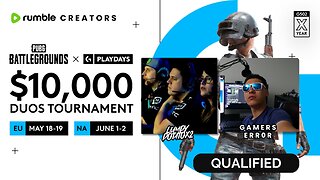 4:48:29
4:48:29
LumpyPotatoX2
11 hours ago$10,000 PUBG Tournament w/GamersError - #RumbleTakeover
60.9K16 -
 3:22
3:22
One Bite Pizza Reviews
2 days agoBarstool Pizza Review - Marco Pizzeria & Restaurant (Branford, CT)
57.8K24 -
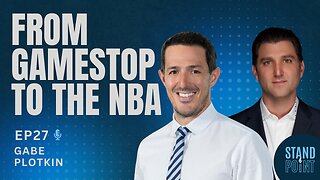 41:46
41:46
Standpoint with Gabe Groisman
16 hours agoEp. 27. From GameStop to the NBA. Gabe Plotkin
60.5K6 -
 55:04
55:04
Matt Kohrs
13 hours agoThe Volatile Week Ahead || The MK Show
76K23 -
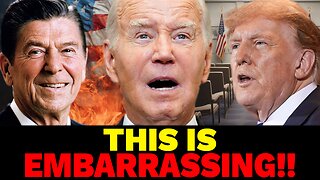 26:18
26:18
Stephen Gardner
12 hours agoTop Republican UNLOADS on Democrats and Biden's MENTAL HEALTH!!
85.1K111 -
 44:30
44:30
Michael Franzese
2 days agoCancel Culture Backlash of My UK Tour | Michael Franzese
142K52 -
 35:12
35:12
Island Hopper TV
1 day ago $13.34 earnedFull Costa Rica Travel Guide 2024
95.1K33 -
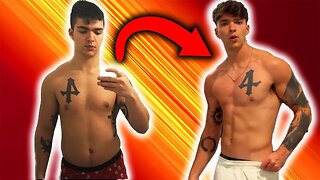 4:43
4:43
ParisDemers
1 day agoThis Diet Hack Changed My Life! (How To Get Ripped FAST!)
99.8K31 -
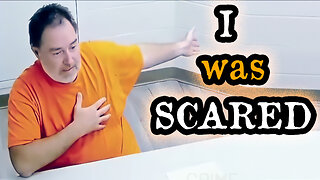 46:57
46:57
Crime Circus
1 day agoApple River ST*BBING!! Stand Your Ground Interrogation of Man in Wisconsin
100K46 -
 9:39
9:39
Tactical Advisor
1 day agoHow To Improve Your Shooting For FREE! Mantis Blackbeard X
107K16